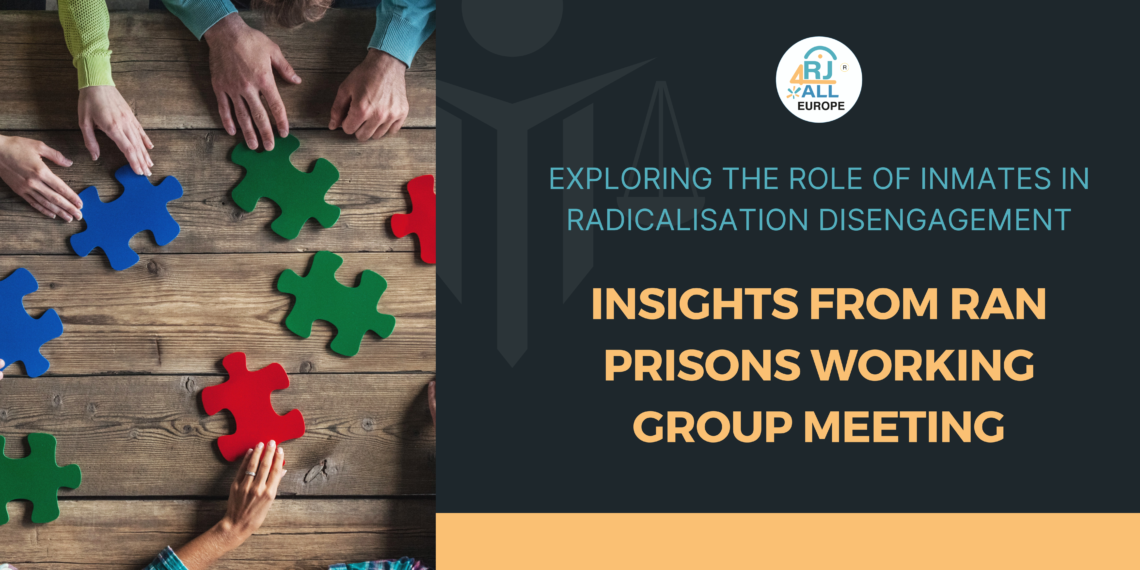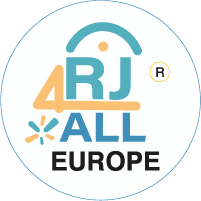
Nestled within the Radicalisation Awareness Network (RAN) lies a dedicated working group in PRISONS, focused on the intricate dynamics within correctional facilities and penitentiary systems. March 13th and 14th, 2024 marked my journey to Prague to partake in a pivotal meeting about the “The active role of the inmate in disengagement, deradicalisation and rehabilitation (DDR)”.
As RJ4All Europe, we embarked on a quest to enhance our understanding and contribute to the ongoing discourse surrounding disengagement, deradicalisation, and rehabilitation efforts. It is undeniable that the criminal justice system is facing a significant threat, and radical efforts are needed to bring about change.
Gathered alongside 21 other P/CVE (Preventing/Countering Violent Extremism) practitioners, I found myself amidst a tapestry of experiences and perspectives from across Europe, including Italy, France, Germany etc. The conversations delved deep into the nuances of inmate involvement in deradicalisation programmes, grappling with the challenge of fostering voluntary participation and compliance within diverse European contexts.
Insights and Perspectives
The meeting provided a platform for practitioners to share their experiences from various settings, including penitentiary institutions and community-based organisations. A key takeaway was the significant impact of setting on inmate involvement, with discussions revolving around compliance and the efficacy of self-directed processes in promoting successful programme completion. It was interesting to see practitioners from all walks of life bring their expertise, disagreeing on details, but ultimately coming together to explore consensus on the approach that can best achieve the desired results.
RJ4All Europe’s Contribution
RJ4All Europe, alongside the Violence Prevention Network in Germany, were the only community-based organisations in the meeting, a fact that allowed for exploration of the different approaches stemming from community-driven initiatives compared to statutory bodies. During the first day of the meeting, RJ4All introduced the potential of restorative justice in addressing violent radicalisation and extremism, drawing attention to the importance of building trust and utilising the voluntary aspect of the restorative justice process to support ex-offenders effectively. The presentation showcased the RJiNEAR model, which encompasses five key domains of change:
- Positive identity, which encompasses aspects such as self-concept, self-relatedness, and self-presentation.
- Emotional agility, which includes emotional intelligence, relational competence, and ethical reasoning.
- Ideological flexibility, which involves fostering creativity, developing new habits of thought, exploring options and alternatives, and promoting citizenship.
- Courage and resilience, focusing on nurturing a growth mindset, fostering grit and perseverance, enhancing wellbeing, and fostering self-actualization.
- Meaningfulness, which involves understanding conflict, acknowledging choice and responsibility for actions, and embracing freedom responsibly.
Furthermore, we spent some time through discussion to explore and understand how these targeted areas of work are interconnected with the psychosocial processes underlying involvement in extremism and violence and how potential activities can support in disengagement.
The Impact
Our presentation resonated strongly with attendees, closely aligning also with the social diagnostics and other methodologies employed by the Violence Prevention Network in Germany. It was both relieving and uplifting to witness similar practices being employed across Europe in pursuit of our shared goals. Furthermore, it is incredibly inspiring to observe frontline practitioners maintaining a keen eagerness to learn, explore new avenues, and apply newfound knowledge in their work. We are personally excited to see the RJiNEAR Model proving its relevance within the broader context of countering violent extremism within correctional settings.
Conclusion
Participation in the RAN PRISONS Working Group Meeting proved invaluable for RJ4All Europe, offering a platform to exchange insights and contribute to ongoing efforts in radicalisation disengagement. As the journey towards enhancing the criminal justice system continues, collaboration and innovation remain essential pillars for achieving meaningful outcomes in rehabilitation and reintegration.









